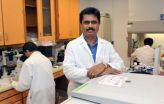Blood pressure management: Sleep on it
Sleeping for up to an hour during the day could facilitate cardiovascular recovery after mental stress
2011-03-01
(Press-News.org) A daytime sleep could have cardiovascular benefits according to new research by Ryan Brindle and Sarah Conklin, PhD, from Allegheny College in Pennsylvania in the US. Their study, looking at the effect of a daytime nap on cardiovascular recovery following a stress test, found that those participants who slept for at least 45 minutes during the day had lower average blood pressure after psychological stress than those who did not sleep. The work is published in Springer's journal International Journal of Behavioral Medicine.
Long work schedules, shift work, increased anxiety and a greater use of the internet and television late at night - all characteristics of our modern society - have had an impact on nocturnal sleep. We no longer sleep as long as we used to: The average sleep duration is now almost 2 hours shorter per night than it was 50 years ago. And this could be impacting our long-term health. For example, sleeping less has been linked to an increased risk of hypertension and cardiovascular problems generally.
Brindle and Conklin's experiment examined how daytime sleep might influence cardiovascular recovery after a mental stress test in the laboratory. They split 85 healthy university students into two groups: One group was allotted a 60-minute interval during the day when they had the opportunity to sleep; the other group did not sleep during the day. The researchers also asked the students to complete questionnaires assessing sleep quality and complete a cardiovascular reactivity task, involving a complex mental subtracting exercise. Brindle and Conklin measured the students' blood pressure and pulse rates at regular intervals throughout the experiment.
They found that daytime sleep seemed to have a restorative effect with students in the sleep condition reporting lower scores of sleepiness than those who did not sleep. Although blood pressure and pulse rates rose in both groups between baseline and the stress phase, during the recovery phase, those who had napped had significantly lower average blood pressure readings than those who had not slept. These results show that sleeping between 45 and 60 minutes during the day appears to facilitate blood pressure recovery after a mental stress task in the laboratory.
Brindle and Conklin conclude: "Our findings suggest that daytime sleep may offer cardiovascular benefit by accelerating cardiovascular recovery following mental stressors. Further research is needed to explore the mechanism by which daytime sleep is linked with cardiovascular health and to evaluate daytime sleep as a recuperative and protective practice, especially for individuals with known cardiovascular disease risk and those with suboptimal sleep quality."
INFORMATION:Reference
Brindle RC and Conklin S (2011). Daytime sleep accelerates cardiovascular recovery after psychological stress. International Journal of Behavioral Medicine;
DOI 10.1007/s12529-011-9150-0
The full-text article is available to journalists on request.
END
ELSE PRESS RELEASES FROM THIS DATE:
2011-03-01
A research study coordinated by Manel Esteller, researcher at Bellvitge Biomedical Research Institute (IDIBELL) has identified a substance that inhibits cancer growth by activating the so‑called "dark genome" (or non‑coding DNA) and micro‑RNA molecules. The study appears this week in the journal Proceedings of the National Academy of Sciences (PNAS).
Human body cells have a genome (the set of our DNA) encoding our proteins such as keratin in the skin or haemoglobin in blood. This genome with encoding DNA represents only the 5% of our genetic material. ...
2011-03-01
About 1,200 criminal justice researchers as well as active and retired law-enforcement professionals from around the world are expected to attend the annual meeting of the international Academy of Criminal Justice Sciences, to be held March 1-5 in Toronto. Presentations of the latest research in the field will be made, including research presented by the University of Cincinnati faculty and students.
Recognized at the conference will be UC researchers Bonnie Fisher, professor, and Francis Cullen, distinguished professor. Fisher and Cullen will receive the 2010 Outstanding ...
2011-03-01
Researchers from Boston University School of Medicine (BUSM) have found that patients with node negative T3 and T4 non-small lung cancer who underwent chemotherapy before surgery had more than three times the survival rate than patients who only underwent surgery. These findings currently appear on-line in the Journal of Thoracic and Cardiovascular Surgery.
The study looked at a total of 110 patients who underwent surgical resection for invasive T3 and T4 non-small lung cancer between 1979 and 2008. Forty-seven patients received neoadjuvant chemotherapy and concurrent ...
2011-03-01
AMES, Iowa - A protein pathway that may hold the secret to understanding Parkinson's disease has been discovered and explained by Iowa State University researchers.
Anumantha Kanthasamy, a distinguished professor of biomedical sciences and the W. Eugene and Linda R. Lloyd Endowed Chair in Neurotoxicology at the ISU College of Veterinary Medicine, has been working to understand the complex mechanisms of the disease for more than a decade. He believes this recent discovery offers hope for the cure.
The research was funded by the National Institutes of Health and is published ...
2011-03-01
WASHINGTON, February 28, 2011) – Results from a study published in Blood, the Journal of the American Society of Hematology reveal a close relationship between pulmonary arterial hypertension (PAH)—exceedingly high blood pressure in the arteries carrying blood from the heart to the lungs—and abnormalities of the blood-forming cells in the bone marrow (known as myeloid abnormalities).
The study, which was conducted by a team of researchers at the Cleveland Clinic, showed that blood progenitor cells (cells that are capable of forming white blood cells, red blood cells, ...
2011-03-01
A new University of Colorado Boulder study indicates an ancient form of complementary medicine may be effective in helping to treat people with mild traumatic brain injury, a finding that may have implications for some U.S. war veterans returning home.
The study involved a treatment known as acupressure in which one's fingertips are used to stimulate particular points on a person's body -- points similar to those stimulated with needles in standard acupuncture treatments, said CU-Boulder Professor Theresa Hernandez, lead study author. The results indicate a link between ...
2011-03-01
ATLANTA –February 28, 2011– A sharp decline in breast cancer incidence rates among non-Hispanic white women in the U.S. after a dramatic drop in the use of postmenopausal hormone therapy did not continue through 2007, according to a new study from the American Cancer Society and the National Cancer Institute. While there are several possible explanations for the recent stabilization, it may indicate that the decrease in breast cancers thought to be related to postmenopausal hormone use has bottomed out. The study appears online in Cancer Epidemiology Biomarkers and Prevention ...
2011-03-01
Troy, N.Y. – Benjamin Clough has developed a novel method for eavesdropping on terahertz information hidden in invisible plasma acoustic bursts. The doctoral student at Rensselaer Polytechnic Institute has demonstrated a promising technique that employs sound waves to boost the distance from which researchers can use powerful terahertz technology to remotely detect hidden explosives, chemicals, and other dangerous materials.
Clough, a student in the Department of Electrical, Computer, and Systems Engineering at Rensselaer, is one of three finalists for the 2011 $30,000 ...
2011-03-01
New York University physicists have developed a method for packing microscopic spheres that could lead to improvements in commercial products ranging from pharmaceutical lotions to ice cream. Their work, which relies on an innovative application of statistical mechanics, appears in the Proceedings of the National Academy of Sciences.
The study aimed to manipulate the properties of emulsions, which are a mixture of two or more immiscible liquids. The NYU researchers examined droplets of oil in water, which form the basis of a range of consumer products, including butter, ...
2011-03-01
New York University researchers have isolated neural activity that reflects basic mechanisms used by the brain to combine elementary pieces of language in order to construct complex ideas.
The study, which appears in the Journal of Neuroscience, was conducted by Douglas Bemis, a graduate student in NYU's Department of Psychology, and Liina Pylkkänen, an associate professor in NYU's Department of Psychology and Department of Linguistics.
Researchers have long studied the neural regions that underlie the processing of complete sentences and other complex linguistic ...
LAST 30 PRESS RELEASES:
[Press-News.org] Blood pressure management: Sleep on it
Sleeping for up to an hour during the day could facilitate cardiovascular recovery after mental stress



